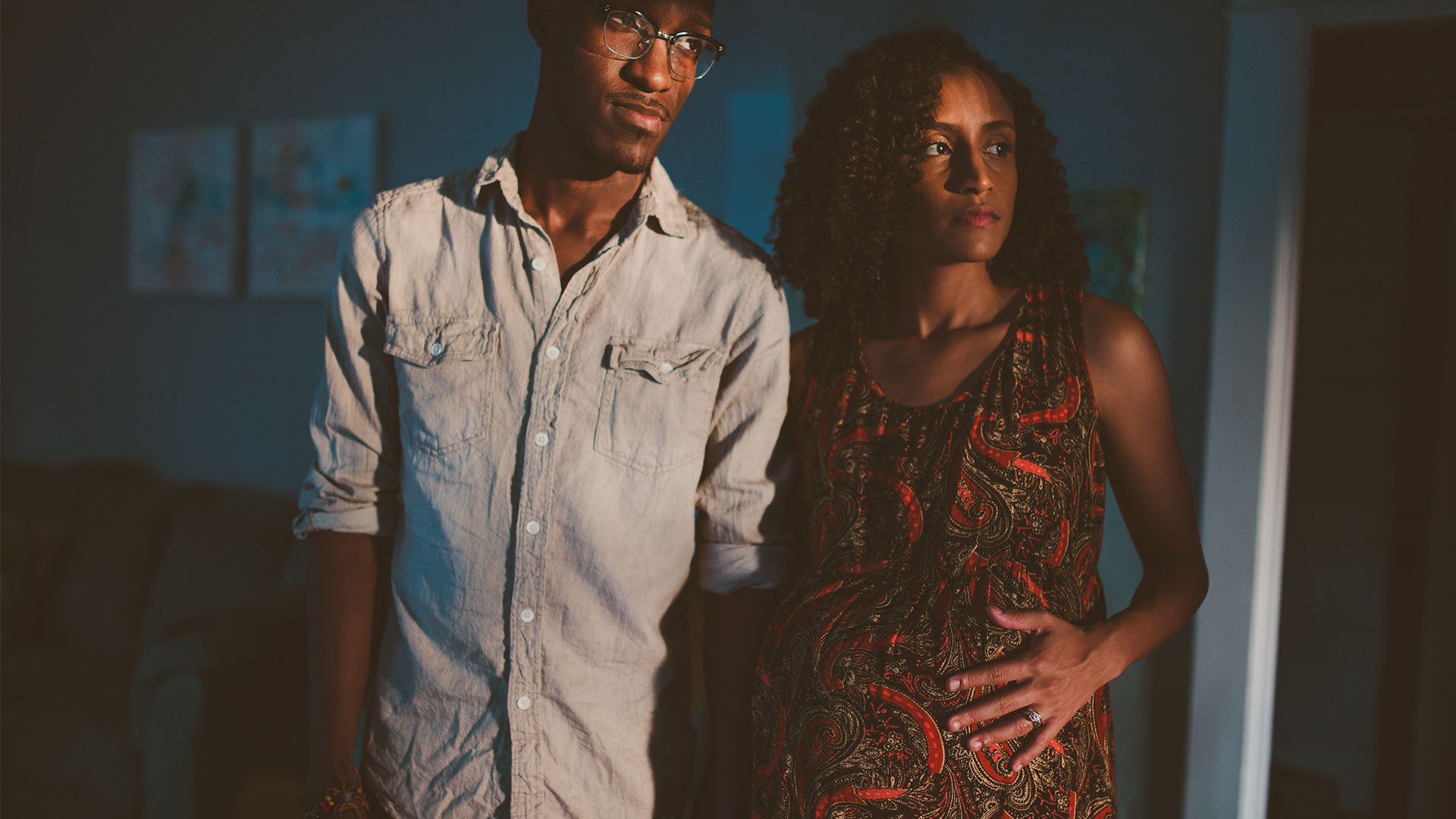“When I Consider the Darkness” is my latest spoken word piece, featuring the wonderful K.A. Ellis. I touch on the topics of racism, persecution, and persevering hope in a very personal poem I penned when pregnant with my first child. I share it in hopes of fostering empathy in conversations around racial reconciliation, while offering unshakable hope to those overwhelmed by the darkness.
Story Behind the Poem
I wrote “When I Consider the Darkness” when I was pregnant with my first child. I sat in bed late at night next to my sleeping husband. I couldn’t fall asleep. One news report after another (coupled with one ignorant, insensitive, and racist response after another) heralded the reality that many will see our precious child as a threat, as more criminal, as less intelligent, as a less-than—because of his/her darkness.
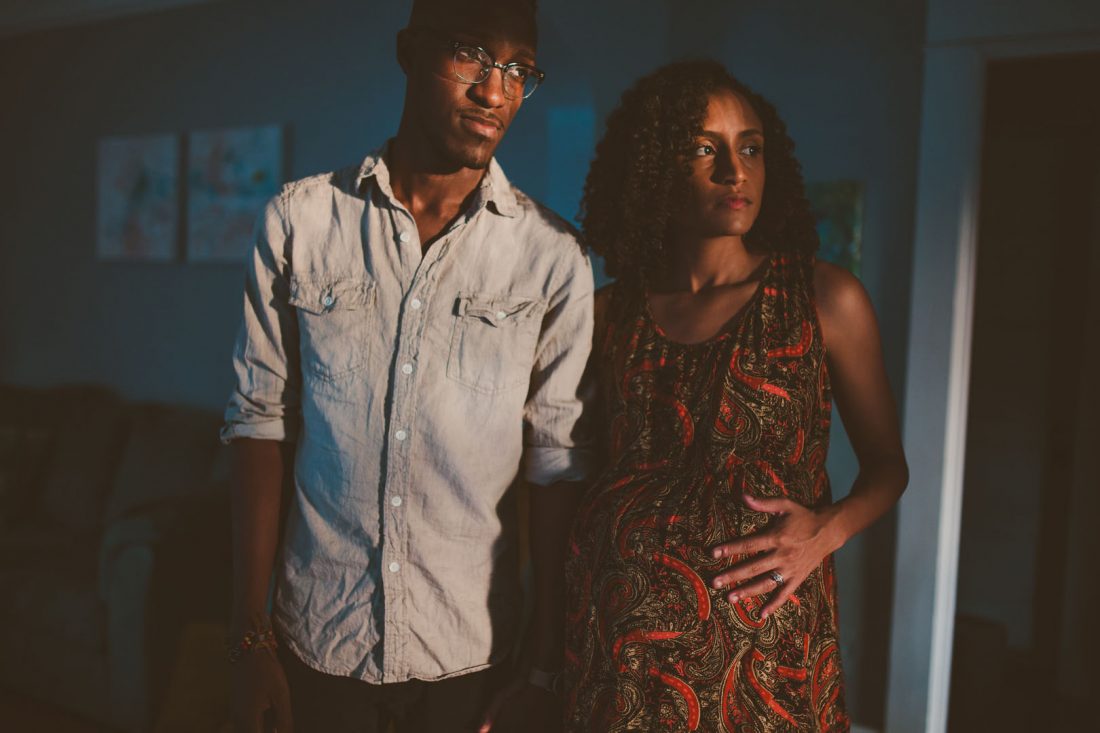
My heritage is incredibly mixed. My mother is half-Filipino, half-Puerto Rican. My father is Jamaican. But both of my parents have lineages that trace back to Italy, China, Germany, and Panama. My large, tight-knit, very mixed and multi-colored extended family has never made me feel insignificant or less valuable because of my having darker skin than most of them. I don’t remember feeling “less than” because of my skin color until elementary school. And it wasn’t until recently that I could recognize some of the ways I’ve internalized racism (check out my interview with Rose in Arrow Photography for more on that). My husband is 100% Colombian, an Afro-Latino, dark and beautiful. He can share with you tons of experiences he’s had with overt racism, some of which I’ve experienced with him since I’ve married him.
When I wrote this poem, I didn’t know yet if we would have a boy or a girl. But I knew I felt scared for him or her. He/she would inherit our dark skin—a beautiful thing, a terrifying thing. And if he/she places his/her trust in Christ (as we pray), then he/she will face persecution in one way or another. Our baby will suffer.
Wrestling with Truth
Because I believe the Bible is true, I know that God made every person in His image with intrinsic value and dignity. I know that every color God made is good and beautiful because He is good and beautiful. But no parent wants to see her child ostracized, accused, or hurt in any way because of her skin color. I don’t want to have to tell my child: “Because of how you look, you have less room for error,” and, “Your skin is beautiful. I know they say it’s not, but it really is!” I don’t want to see those tears fall on those precious cheeks when she realizes that some people will hate her simply because she is darker than them.
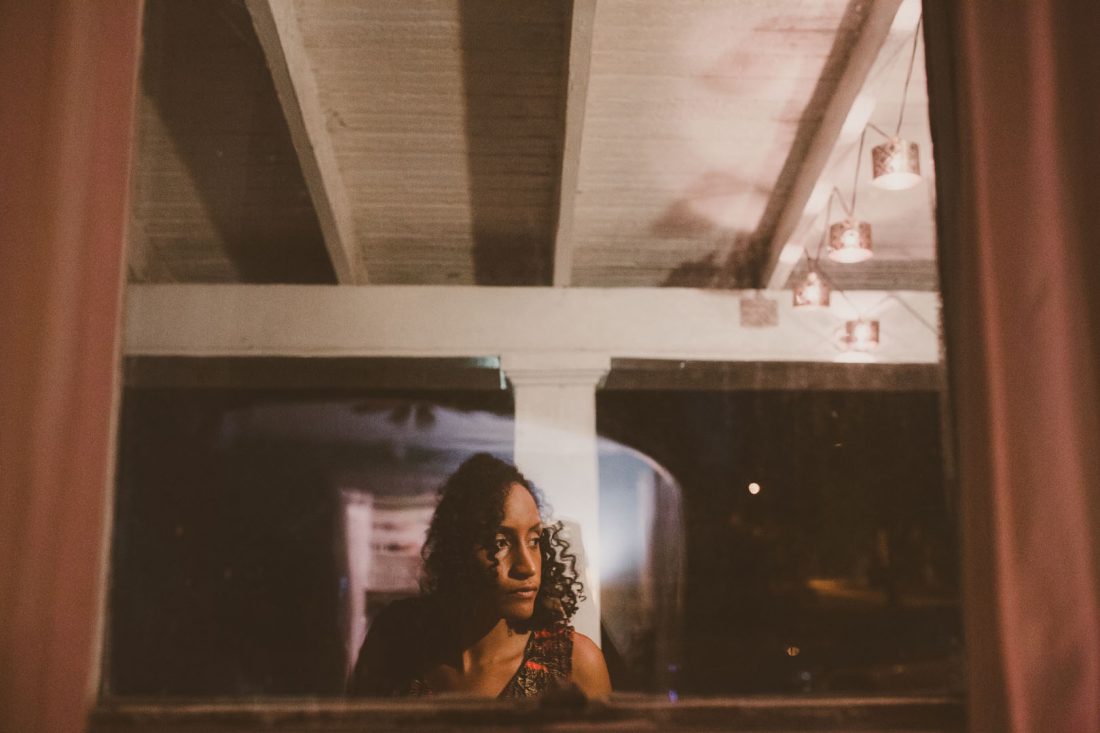
I know that in Heaven my child’s color and language and heritage will not serve as a barrier, but as a perfectly beautiful means of bringing God glory (Revelation 5:9). But here and now, we live in a world with much darkness: we are sinners (darkness within) in a sinful world (darkness without). Darkness abounds, manifested at times in the hatred of melanin. And this is the darkness I fear for my child—the darkness that says (sometimes in a shout, sometimes in a whisper, sometimes with a bullet): “You are less than human.”
So my poem “When I Consider the Darkness” is an honest confession of my fear of my child’s dark skin—not because I think dark skin is something to fear, but because so many do. The darkness that scares me is the evil of racism, as well as the evil of persecution. But my poem is also a reminder to myself (and to my child) that the darkness of evil in this world, no matter how brutal, cannot snuff out the light of Christ.
A Light Indestructible
Jesus, the light of the world, came to this dark world and seemed consumed by its darkness at the cross (John 1:9-11). But it is there—in midday darkness, suffering the greatest injustice of all time—that He was defeating the darkness of this world (Mark 15:33-34; Acts 2:36; Isaiah 53:3-10). He bore in His body our darkness, including our sin of racism, and faced the wrath of God on our behalf (2 Corinthians 5:21; Romans 5:9; Isaiah 53:10). It is on that third day that He rose in victory over our sin, death, Satan…all the darkness (Colossians 2:13-15). He overcame the darkness (John 16:33). And His promise is that all who place their trust in Him cannot and will not be overcome by this world of darkness (1 John 5:4-5). Because of Jesus, we can and will overcome the darkness, both within and without. In Him, life will swallow up death (1 Corinthians 15:51-57). Light will consume the darkness (Revelation 21:23-25).
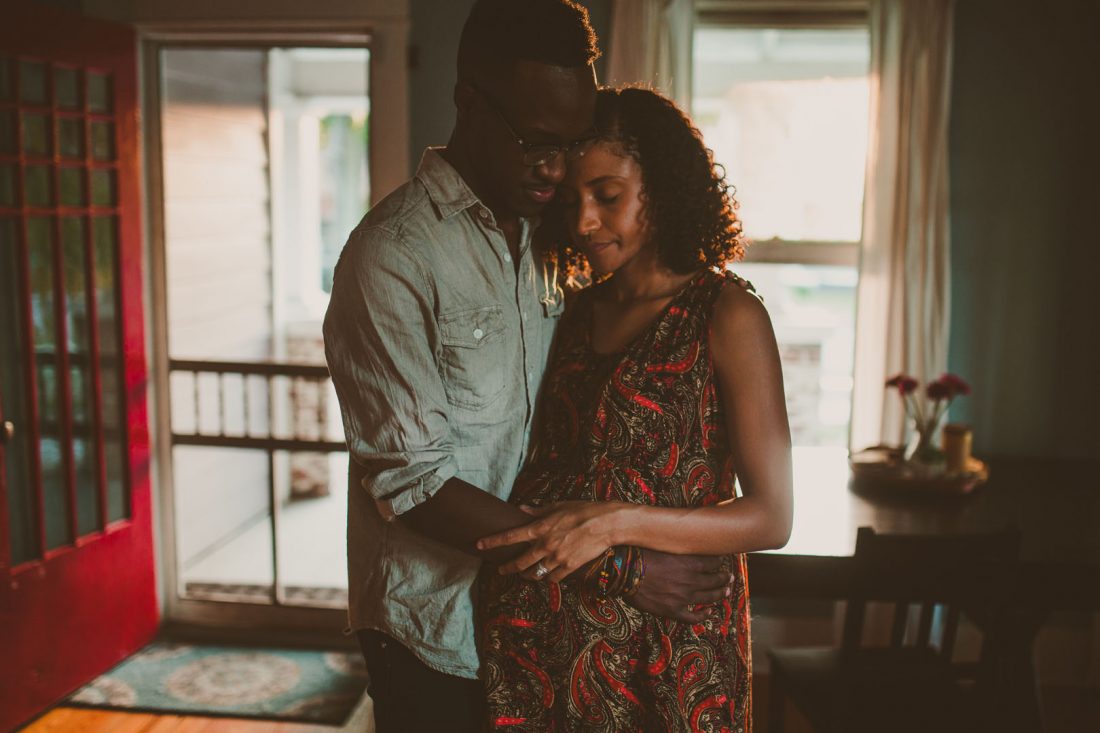
K.A. Ellis
K.A. Ellis wrote her part of the piece (entitled “There, There”) as a hope-filled response to my poem. I love how profoundly she exudes the spirit of a mother well-acquainted with the words and ways of her Lord, pouring out the healing grace of wisdom and hope on her child. When I hear our spoken word piece, I imagine myself as the young, Christian, Black mother who is wrestling with fear, and K.A. Ellis as my mother, comforting me with sweet truths while rubbing my back, saying, “There, there.”
K.A. Ellis is a global ambassador for the persecuted church. She explores the zones where identity, human rights, and theology intersect. I’ve had the privilege of getting to know her and her husband Carl Ellis over the last year. I’ve been greatly impacted by her presentations at conferences on the perseverance of the persecuted church. If you’ve never heard her speak, you are sorely missing out on some rich insight. She has coined the phrase “We Persevere” which is displayed at the end of my video. Check out her blog to learn more about the heart behind #WePersevere and make sure to purchase some “We Persevere” merchandise (designed by my husband!) to support the persecuted church.
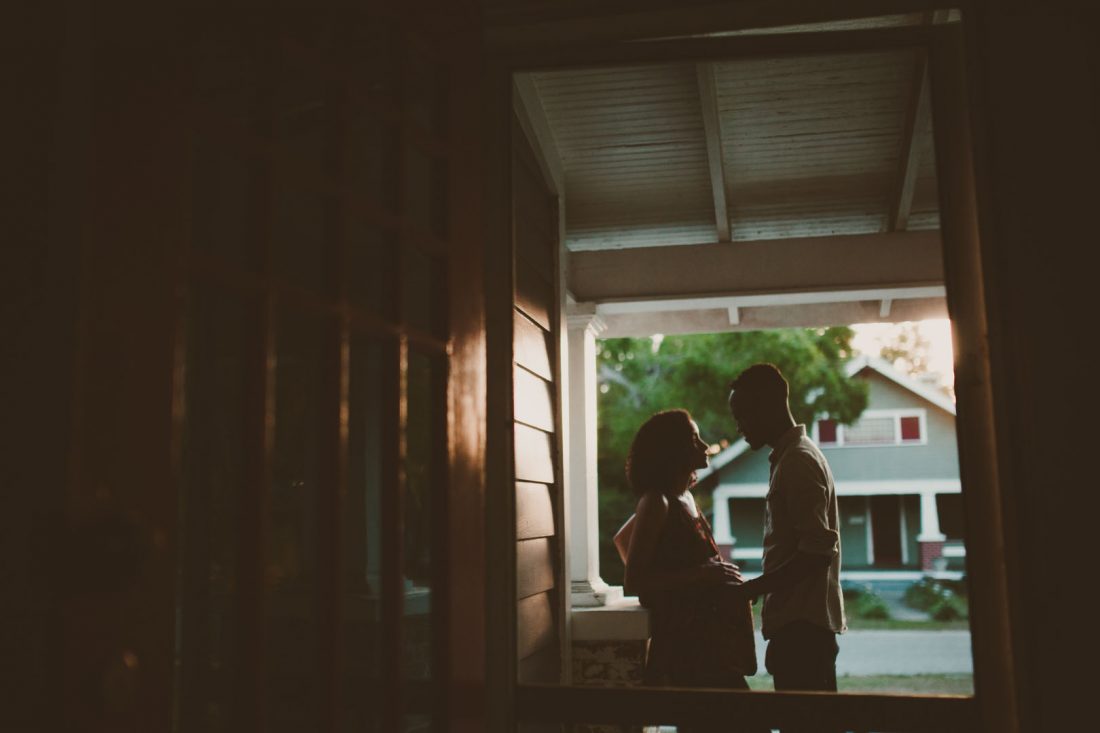
The Video Concept
The video was a collaboration between Captive Reel (videography), Savannah Lauren (DP), and Jon Doulos (editing). We wanted to create a visual that would feel warm and would show that we are just a regular, loving family. We used Savannah’s adorable house, and we shot simple scenes of dinner time, dessert on the porch, etc. K.A. Ellis’ voice is represented by the antique-looking radio in the kitchen. She is the radio personality at the beginning of the video reciting Langston Hughes’ poem entitled “Song.” The radio represents a herald of comforting truth embodied in K.A. Ellis’ poem “There, There.” By the end of the video I’m back in the kitchen, leaning in to listen to the radio’s words of hope in which I rest.
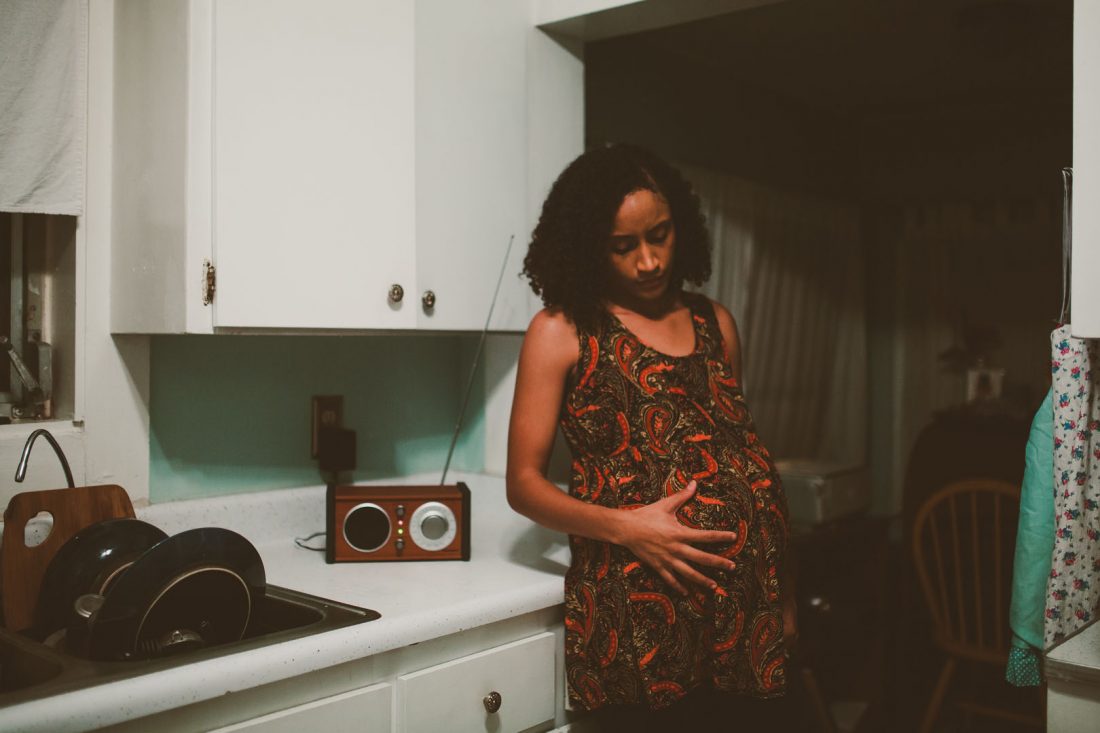
Why Share This Personal Poem?
I didn’t originally plan to share “When I Consider the Darkness” publicly because conversations around race can be polarizing, and I was weary of having to defend the validity of my grief, my blackness, my concerns. But eventually I figured (and hope) that this piece may foster some empathy in conversations around racial reconciliation, while also offering the unshakable hope of Christ to those who, like me, struggle with fear and heartache in this world’s darkness.
Your Thoughts?
I’d love to hear from you. Let me know your thoughts on “When I Consider the Darkness” by commenting below. 🙂
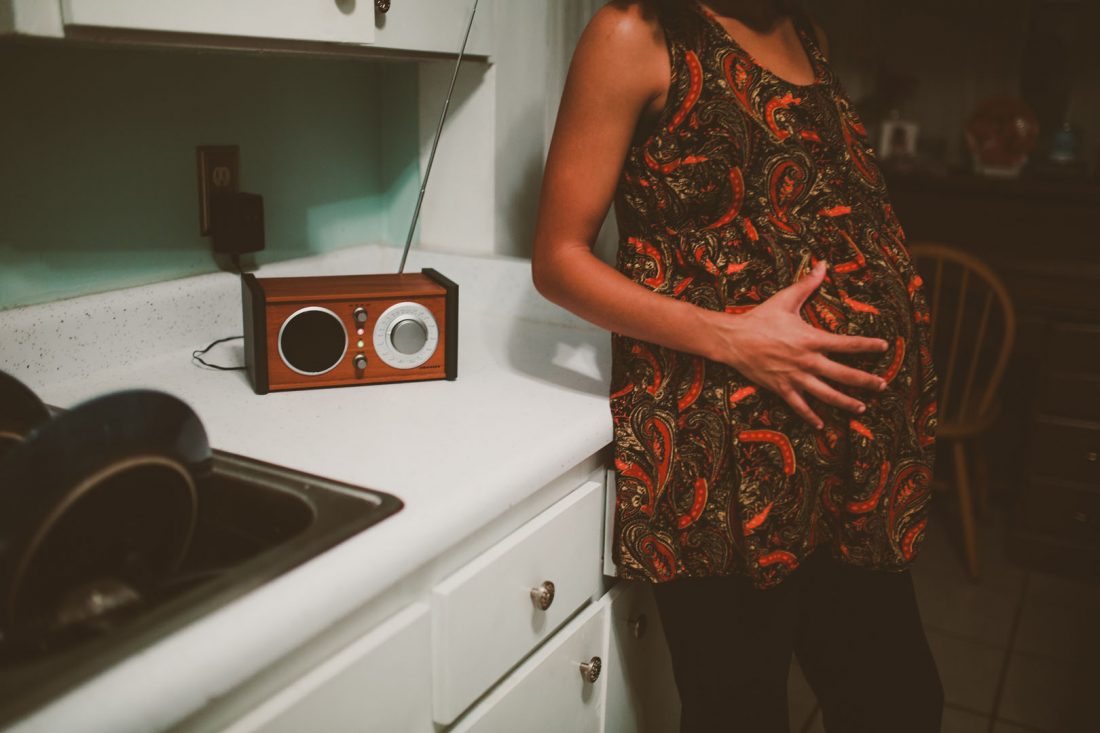
Lyrics
When I Consider the Darkness (Written & Performed by Quina Aragon)
I’m scared to raise you here where
a reed basket can’t deliver
an escape from the pain of your inheritance.
You’re your papa and me combined–
a Filipino/Puerto Rican, Jamaican, Colombian; a beautiful mix.
But what they’ll see first is your darkness,
a sight for them of a less-than them,
less than a man or a woman.
Now, in our home you’ll see this:
we bear Christ’s name above heritage,
but this means
you’ll wear not just one, but two targets
in this present darkness:
what they see immediately, then
what they see internally.
The first you can’t deny, and shouldn’t;
the second they’ll try but can’t truly deny,
but it can be compromised,
so even in darkness tonight,
my prayers plead for you
hidden in my dark belly
soon born to light
and this darkness
born dark
to little lights
born again (I pray):
dark to light
a dark child of light
hated by light children of darkness, yet
a light indestructible inside
can’t be consumed by the present darkness.
A light indestructible inside
is more precious than your hated,
wonderfully made dark skin.
A light indestructible inside, my child,
can’t be consumed by the present darkness.
There, There (Written & Performed by K.A. Ellis)
There, there…
Here’s my prayer.
This is the picture I see
Hold onto the baptism of wisdom
This is the picture I see
Hold onto the baptism of peace
This is the picture I see
We have the baptism of life
From the bud of our lives in the sweet springtime
until the days when autumn’s bronze … swirls the early snow around our many-miled feet
This is the picture I see.
Winter Wisdom adorns our heads
like a gele or a Sunday crown
a helmet that stills our minds
whenever the world shouts “less than”
There, there.
There is a purpose. Don’t fret.
All that was lost has already been won.
Promises made are promises held.
Who we are is who we’ve been made to be
and our lives and bodies are divine appointments.
All of us is wrapped up in all of Him
and in that place … we are full.
There, there.
This is the picture I see.
Other Helpful Links
The And Campaign
Scripture and the long shadow of American slavery
5 Ways to Disrupt Racism
Teaching your kids about race and reconciliation
Christians & Social Justice
How Can Blacks & Whites Stand Together on Racial Injustice?
When “Black” and “Christian” Collide
Understanding the Problem – Racial Justice Series
Credits
Poems in order of performance:
“Song”
Written by: Langston Hughes
Performed by: K.A. Ellis
“When I Consider the Darkness”
Written & Performed by: Quina Aragon
“There, There”
Written & Performed by: K.A. Ellis
Music Produced by: On Beat Music
Mixing/Mastering: @jcg_hga
Videography: Captive Reel
Director of Photography: Savannah Lauren
Editing: Jon Doulos
#WePersevere
*All photos in this blog post are by Savannah Lauren


